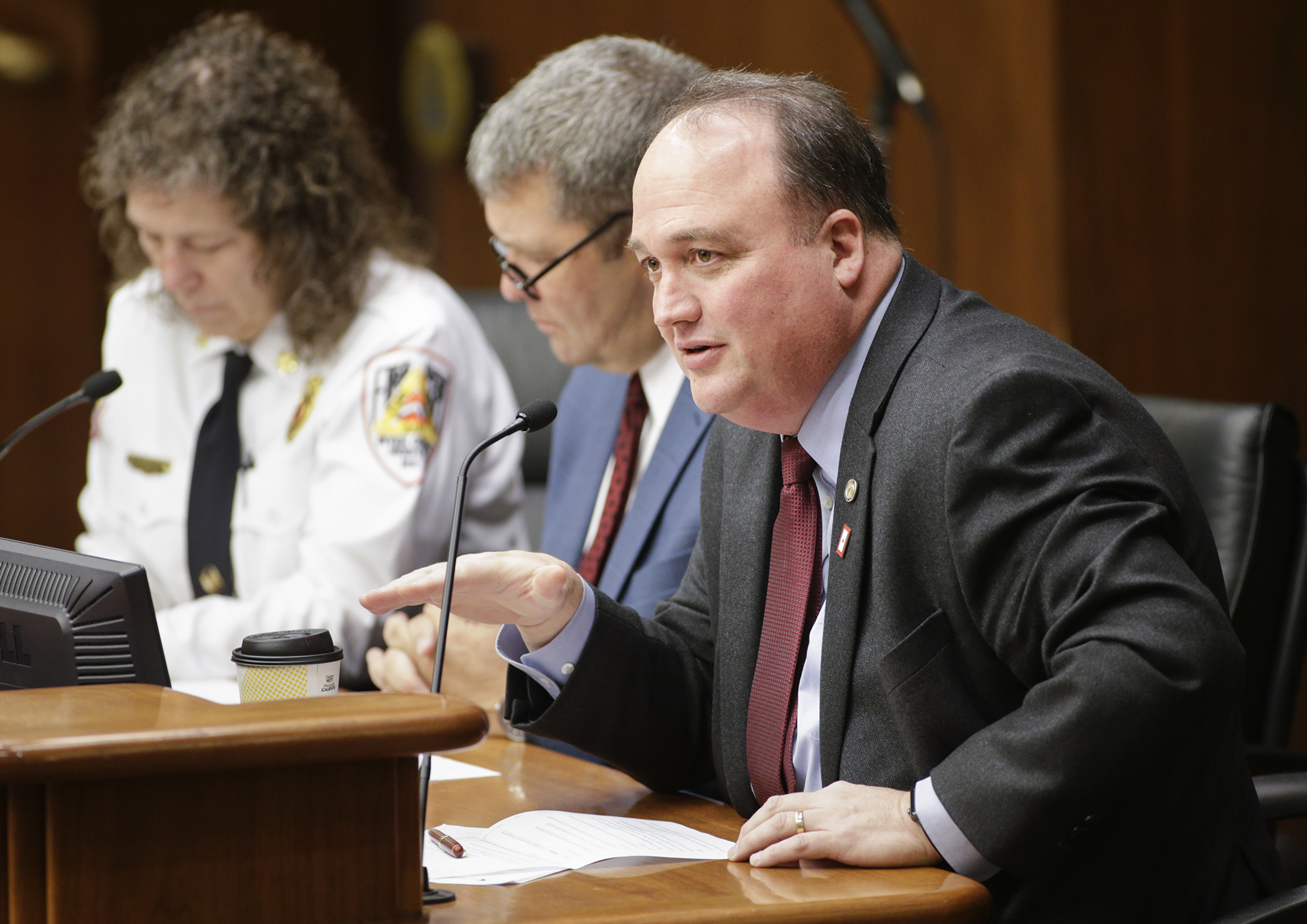Would a tax credit help retain firefighters and EMTs?

If you see a firefighter rescuing residents from a burning house or building, you should know that, in most of Minnesota, that firefighter is probably a volunteer. The same may be true of the emergency medical technician you see assisting someone.
Inver Grove Heights Fire Chief Judy Thill told the House Taxes Committee Tuesday that “92 percent of our firefighters in Minnesota are volunteers. We have the second highest percentage of volunteers in the nation.” The Minnesota Ambulance Association’s Legislative Affairs Director Buck McAlpin added, “About 62 percent of our 28,000 EMTs and paramedics in Minnesota are volunteers.”
Becoming a firefighter or EMT requires a lot of time and training, and it’s clear that people are deciding that they just don’t have the time anymore. “While it used to be 20 years or more that volunteer firefighters would stay on a fire department, now the average is five years,” Thill said. “And the first one or two years is solely on training.”
What’s going to get firefighters and EMTs to stick around? Well, how about a tax credit? HF1993, sponsored by Rep. John Huot (DFL-Rosemount), would establish a $500 nonrefundable tax credit for volunteer firefighters, EMTs or ambulance service people. The bill was laid over for possible inclusion in the omnibus tax bill.
The bill’s companion, SF2254, sponsored by Sen. Andrew Lang (R-Olivia), awaits action by the Senate Taxes Committee.
“Recruitment and retention has always been a problem, and this is one tool we’re looking at,” Huot said. “It does have a hefty fiscal note, but these are the volunteers who wake up in the night, go to fight a fire for a few hours, then go to work the next morning.”
That “hefty” cost is $9.7 million per year, according to the Department of Revenue, as the credit would likely be used by 20,500 taxpayers.
The idea of a financial incentive to retain volunteer firefighters and EMTs has been tried before, as a $500 stipend was given to them in several counties between 2015 and 2017. Both the committee chair, Rep. Paul Marquart (DFL-Dilworth), and the Republican lead, Rep. Greg Davids (R-Preston), asked if it has made a difference in retention rates in those counties. McAlpin said that he knew of no data to answer that.
Marquart also asked the testifiers why they think the state is seeing such a decline in both roles.
“It is a lot of training, 100 to 150 hours just for basic firefighting,” Thill said. “And there is a lot of training for EMTs, 120 to 140 hours. … And there’s been a lot of mission creep, in which fire departments are having to do a lot more (emergency medical services) first response. Where they used to do about 200 to 250 calls (a year), they’re now going to 400 or 500 calls. And that is a huge imposition on their time.”
Related Articles
Search Session Daily
Advanced Search OptionsPriority Dailies
Legislative leaders set 2026 committee deadlines
By Lisa Kaczke Legislative leaders on Tuesday officially set the timeline for getting bills through the committee process during the upcoming 2026 session.
Here are the three deadlines for...
Legislative leaders on Tuesday officially set the timeline for getting bills through the committee process during the upcoming 2026 session.
Here are the three deadlines for...